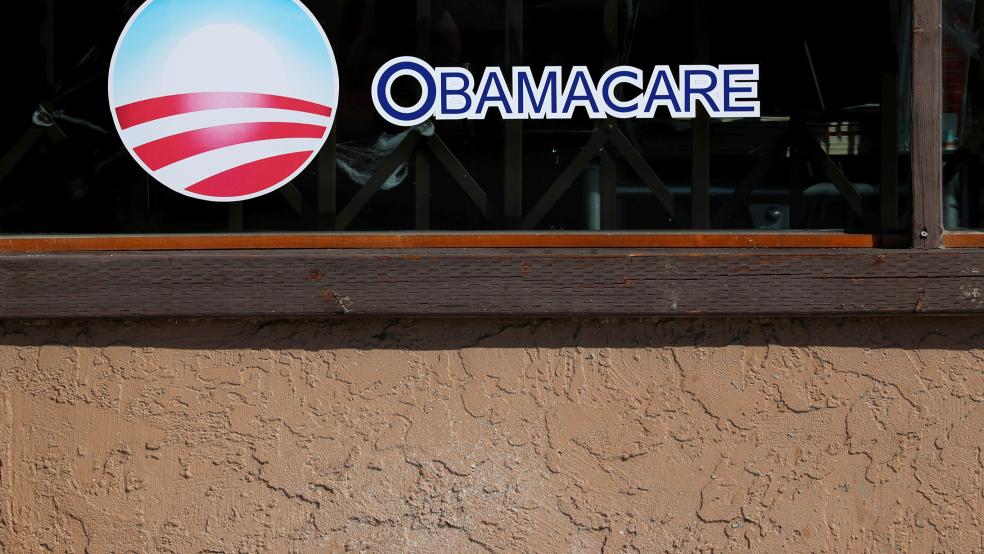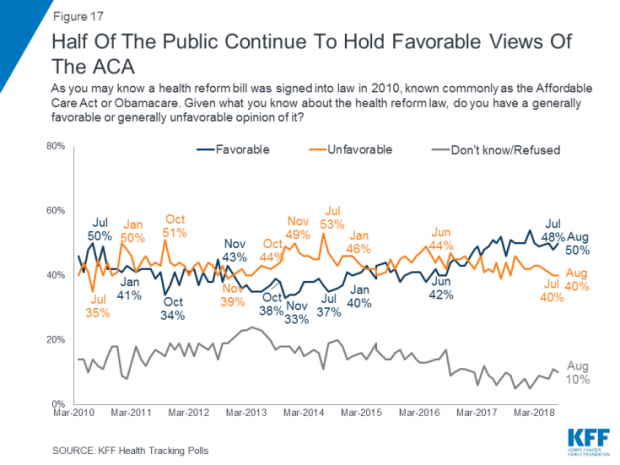The debate over the Affordable Care Act entered a new phase Wednesday as a federal court in Texas began hearing oral arguments in a lawsuit brought by 20 Republican-led states challenging the constitutionality of the 2010 law.
Eighteen Republican state attorneys general and two GOP governors bringing the suit argue that the law’s individual mandate was rendered unconstitutional when Congress lowered the penalty for individuals who don’t buy coverage to zero.
The Supreme Court, in upholding the law in 2012, deemed that penalty a tax and thus a valid and legal exercise of Congress’ power of the purse. The lawsuit claims that the law is no longer constitutional because the zeroed-out penalty can no longer raise revenue. "It's nothing but a hollow shell because its core has been invalidated," said Misha Tseytlin, Wisconsin's solicitor general.
The plaintiffs also claim that this means the entire ACA — and, in particular, its protections for patients with pre-existing conditions looking to buy insurance — must be struck down because the mandate can’t be severed from the rest of the law. The Trump Justice Department decided not to defend the ACA in the case.
What a Kavanaugh Confirmation Might Mean
The case, which legal experts see as a long shot, may still wind up before the Supreme Court — which is why Democrats have brought up Obamacare and its protections for patients with pre-existing conditions in this week’s confirmation hearing for Brett Kavanaugh, President Trump’s nominee to replace Justice Anthony Kennedy.
“Kavanaugh has signaled in private meetings with Senate Democrats that he is skeptical of some of the legal claims being asserted in the latest GOP-led effort to overturn the Affordable Care Act,” the Los Angeles Times’ Jennifer Haberkorn reported last week. Three Democrats in the meetings told the Times that Kavanaugh suggested that if one piece of the law is struck down, the rest of the law doesn’t necessarily have to fall with it.
But that may not be enough to assuage Democratic fears that Kavanaugh could be the deciding Supreme Court vote against Obamacare. “Democrats are more concerned about Kavanaugh's past writings on expansive presidential powers, which they say could lead to his supporting efforts by the Trump administration to dismantle the health-care law without Congress,” The Washington Post’s Colby Itkowitz notes.
Where Public Opinion Stands
The political debate over Obamacare has shifted as public perception of the law has improved. The latest Kaiser Family Foundation tracking poll, released Wednesday, finds that 50 percent now view the law favorably while 40 percent see it unfavorably, with the divide still falling along partisan lines. Just under 80 percent of Democrats support the law, while a similar percentage of Republicans oppose it.
That may be why Republicans still view repealing the law as a potent issue with their base. Vice President Mike Pence, in Wisconsin last week to campaign for Senate candidate Leah Vukmir, said the GOP push to repeal and replace the health care law was still alive: “We made an effort to fully repeal and replace Obamacare and we'll continue, with Leah Vukmir in the Senate, we'll continue to go back to that," he told reporters. With Sen. Jon Kyl (R-AZ) replacing John McCain, a critical vote against the GOP’s 2017 Obamacare repeal bill, there has been chatter about another potential repeal effort — though Senate Majority Leader Mitch McConnell effectively shot that down on Wednesday.
In the meantime, open enrollment on the ACA exchanges is set to begin on November 1, with the Trump administration once again providing reduced funding for outreach groups that help people enroll. A recent report by the nonpartisan Government Accountability Office criticized the administration’s management of Obamacare signup periods.






